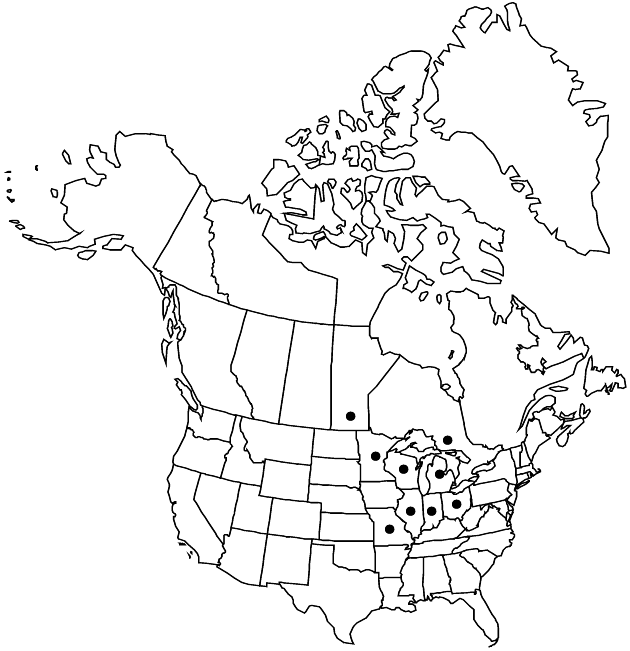Difference between revisions of "Solidago riddellii"
W. J. Med. Phys. Sci. 8: 499. 1835.
imported>Volume Importer |
imported>Volume Importer |
||
| Line 64: | Line 64: | ||
|publication year=1835 | |publication year=1835 | ||
|special status=Endemic | |special status=Endemic | ||
| − | |source xml=https:// | + | |source xml=https://bitbucket.org/aafc-mbb/fna-data-curation/src/2e0870ddd59836b60bcf96646a41e87ea5a5943a/coarse_grained_fna_xml/V19-20-21/V20_361.xml |
|tribe=Asteraceae tribe Astereae | |tribe=Asteraceae tribe Astereae | ||
|genus=Solidago | |genus=Solidago | ||
Latest revision as of 20:02, 5 November 2020
Plants 40–100 cm; caudices branching; vascular bundles and petiole bases marcescent (attached to old stems for more than a season). Stems 1–10+, erect, glabrous. Leaves: basal and proximal cauline usually withering by flowering (other rosettes may be present), tapering to long, winged petioles, blades often recurved, linear- lanceolate or -oblanceolate, 100–240 × 8–16 mm, folded along midrib (V-shaped in cross section), bases usually with (2–)3–8 prominent lateral nerves, apices acute to obtuse, faces glabrous; mid to distal cauline sessile, blades recurved, linear-lanceolate, 50–70 × 8–11 mm, reduced distally, folded, bases with prominent lateral nerves. Heads 30–450 in corymbiform to somewhat paniculiform with rounded corymbiform branches (robust plants) arrays, branches and peduncles strigillose. Peduncles 2.8–4 mm, moderately short-hispido-strigose, lanceolate bracteoles 0–1. Involucres narrowly campanulate, 4.5–6 mm. Phyllaries (14–18) in 3–4 series, unequal, obtuse, broad, striations weak, obtuse to rounded, glabrous. Ray florets 7–9; laminae 4.5–5.5 × 0.4–0.5 mm. Disc florets 6–10; corollas 4.5–5.2 mm, lobes 0.7–1.8 mm. Cypselae 1.5–2.2 mm, glabrous; pappi 3.5–4 mm (apically clavate). 2n = 18.
Phenology: Flowering Sep–Oct.
Habitat: Wet prairielike sites and marshy ground
Elevation: 100–400 m
Distribution

Man., Ont., Ill., Ind., Mich., Minn., Mo., Ohio, Wis.
Discussion
Selected References
None.